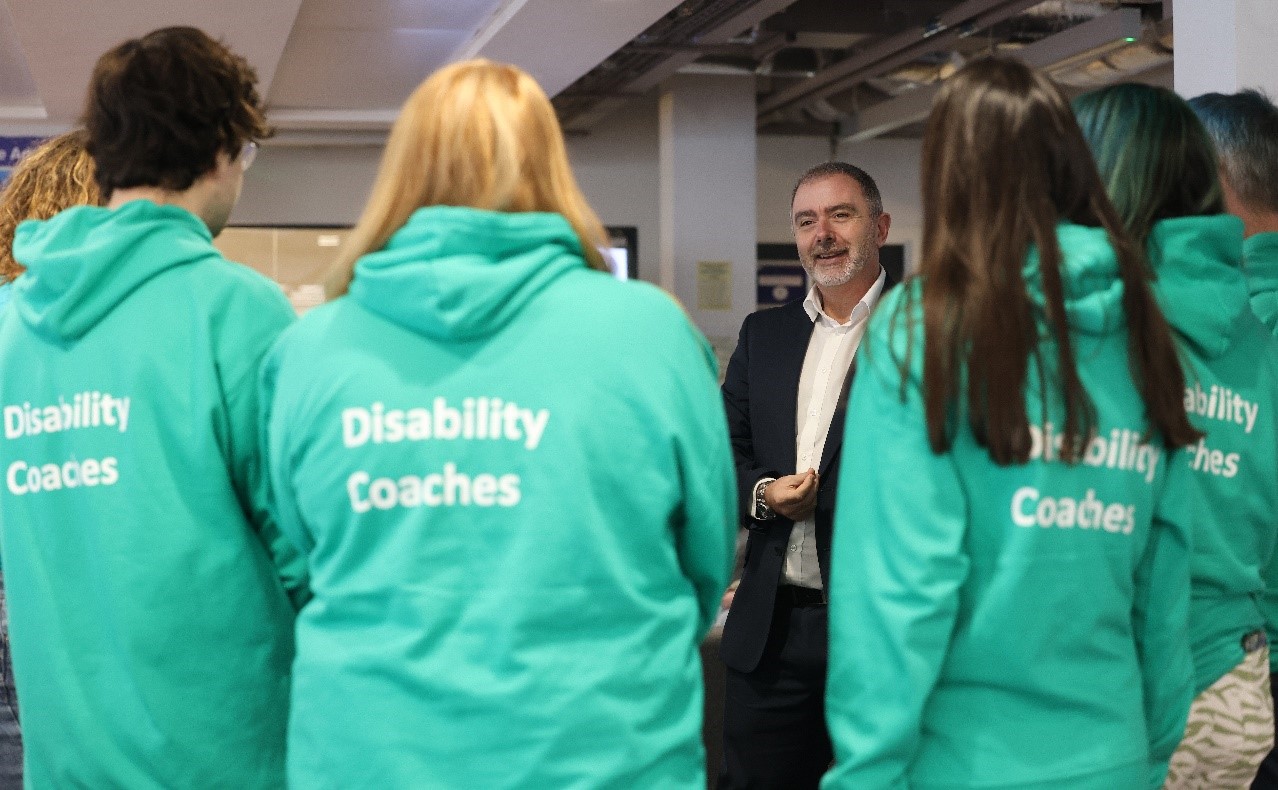
Zack is a third-year computer science student and is working as a Disability Coach for the University.
We caught up with Zack to hear more about his role and to find out Zack’s advice for students with a disability.
What does a Disability Coach Do?
Primarily, we act as a first port-of-call for all disability-related enquires. We have a good understanding of the University and its many teams, which can be difficult to navigate and can be a barrier for disabled students accessing support. If we can’t help with an enquiry, we can direct students to the correct team within Student Services.
Secondly, and most importantly, we aid students with setting up their Student Support Information Sheet (SSIS) or support plan. A support plan outlines the adjustments that a student is entitled to due to their disability, such as extra exam time, coursework deadline extensions and flexibility with attendance. The coaches support students at every step of the roadmap, starting with helping students acquire the appropriate medical evidence, and then aiding students with accessing their support once it’s in place. Furthermore, the coaches help students navigate Disabled Students’ Allowance (DSA), which is the disability support provided nationally by Student Finance.
Finally, we are lucky enough to get invited to meet with University visitors to represent the Student Services provision and lend a student voice to advocate for equality and inclusion. This has included visits from the Office for Students, University donors, and Robert Halfon MP, the Minister of State at the Department for Education. I’m proud that the coaches have become a bastion of equality and inclusivity on campus, a visible beacon for all disabled staff and students across the university community. My hope is for this visibility to keep growing, for an increased ease of access for disabled student support, and the stigma surrounding disability to shrink as understanding grows.
What are the disability coaches like?
The coaches are inspiring, committed advocates.
What question do you get asked most by students who come to see you?
The most frequent enquiry is definitely SSIS/support plans, ranging from setting one up, to editing it, or support with accessing the entitled academic adjustments.

What one thing do you wish students with a disability at the University knew?
While the system can be tricky to navigate, there is a wide range of support available, and the coaches can help you get the adjustments that allow you to work at your best. In addition, the support stretches beyond your academic department. With a support plan, you’ll get access to dedicated study spaces in the Sydney Jones Library, and access to assistive technology from IT Services.
For first year students, note that any support from your previous school or university does not carry over – please sort your support with us as soon as possible to avoid a last-minute panic.
What are the top resources you think students with a disability should know about?
- Disability Coaches drop-in (in person or online live chat)
- Disabled Students’ Allowance
- The University’s Diagnostic Assessment Fund
- AccessAble – accessibility information for all campus buildings
- The University’s inclusive resources
What are the top services you think students with a disability should know about?
- You can contact Ste Summers from IT Services directly with any enquires for assistive technology (both software and hardware) – summers@liverpool.ac.uk
- Departmental Disability Contact – a dedicated academic in each department who supports disabled students
- Learning Teaching Support Officers (LTSOs) – staff in each faculty who will support your student experience
- Wellbeing, Mental Health, and Counselling teams
- Guild Advice
Are there any groups or networks at the University you’d recommend students to get involved with?
The Wellbeing team often run social events in the Alsop building like board game nights and arts & craft sessions, which is a relaxed environment to meet with other students. There is also a Disability Society ran by students in the Liverpool Guild of Students, who run regular meet-up events.
If a student is uncertain about accessing support from the University for a disability, what would your advice be to them?
There are thousands of disabled students on campus across all academic departments – please never feel like you would be singled out or treated differently. Accessing support for your disability can only open doors for you.
Zack’s final piece of advice:
Your support plan is customised to your particular needs. Please don’t have any concerns around ‘not being disabled enough’, as long as you have a long-term health condition, we are here to support you.